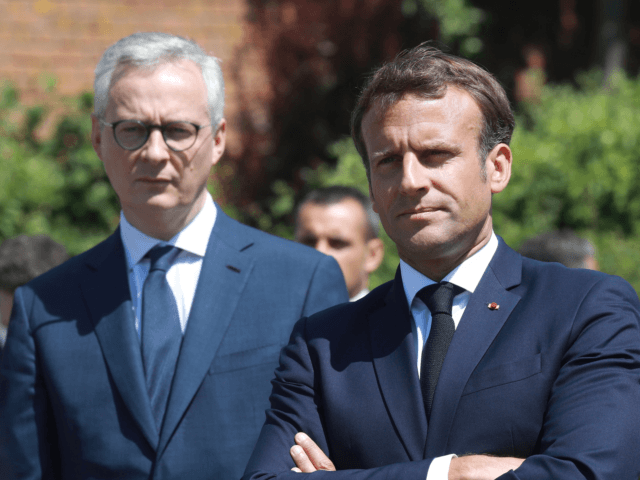France said it will push for an EU-wide embargo on Russian oil to dry up a crucial energy revenue stream for Vladimir Putin’s government, a government minister said.
On Tuesday, French economic minister Bruno Le Maire said that the government of Emmanuel Macron, who has been one of the few leaders to frequently hold peace talks with Putin, will push for an EU embargo on Russian oil following a similar move to ban coal in response to the invasion of Ukraine.
“We are trying to convince our European partners”, the Minister of the Economy said according to the Le Figaro newspaper, adding that the only reason that such an embargo has not already been put in place is “because some European partners still have hesitation.”
While Le Maire did not specify which countries he was referring to, the main opposition against the move to cut off Russian oil from Europe has been the economic powerhouse of the bloc, Germany, which is heavily dependent on natural gas and oil from Russia to keep its economy churning after years of pursuing a green agenda.
Germany has so far rejected calls for an immediate oil embargo and Chancellor Olaf Scholz has said that his government will look towards becoming “independent” of Russian oil by the end of the year. However, the leftist leader has refrained from making any declarations of intent on natural gas, which his country is far more reliant on as it still accounts for around 40 per cent of its imports.
Indeed, on Monday, a major German employer’s group (BDA) and a leading union (DGB) released a joint statement, calling on the government to reject an embargo on Russian gas, warning of dire economic consequences.
“A rapid gas embargo would lead to loss of production, shutdowns, a further de-industrialization and the long-term loss of work positions in Germany,” said BDA chairman Rainer Dulger and DGB union boss Reiner Hoffmann in a joint statement.
As a whole, despite imposing an array of sanctions against Russia following the invasion of Ukraine, the European Union still sends approximately €1 billion (£828 million/$1.09 billion) every day to Moscow in energy payments, according to the EU’s foreign policy chief Josep Borrell.
France’s Minister of the Economy, Bruno Le Maire said that he hopes “that the reality of the situation in Ukraine will move the lines”.
Germany has long been criticised, including by former President Donald Trump, for its over-reliance on Russia for energy as it benefited from American military protection from Russia.
Unlike Germany, which has invested heavily in so-called renewables such as wind and solar, France is far less dependent on Russia for energy due to its robust nuclear energy sector, which supplies the country with around three-quarters of its needs. Germany, meanwhile, has committed to shutting down all of its nuclear power plants.
The differences in approach have seemingly resulted in France actually being able to negotiate with Russia during the Ukraine war — though talks have stalled in recent days — while Germany has been effectively sidelined, with even Ukraine turning down a visit from German President Frank-Walter Steinmeier earlier this month.
Even prior to any embargo on gas or oil, the German economy has suffered greatly, with food and fuel prices seeing sixty-year high rises, prompting concerns of shortages and gas rationing. Inflation overall has climbed at the fastest rate since the fall of the Berlin Wall, rising to 7.3 per cent in March.
Follow Kurt Zindulka on Twitter here @KurtZindulka

COMMENTS
Please let us know if you're having issues with commenting.